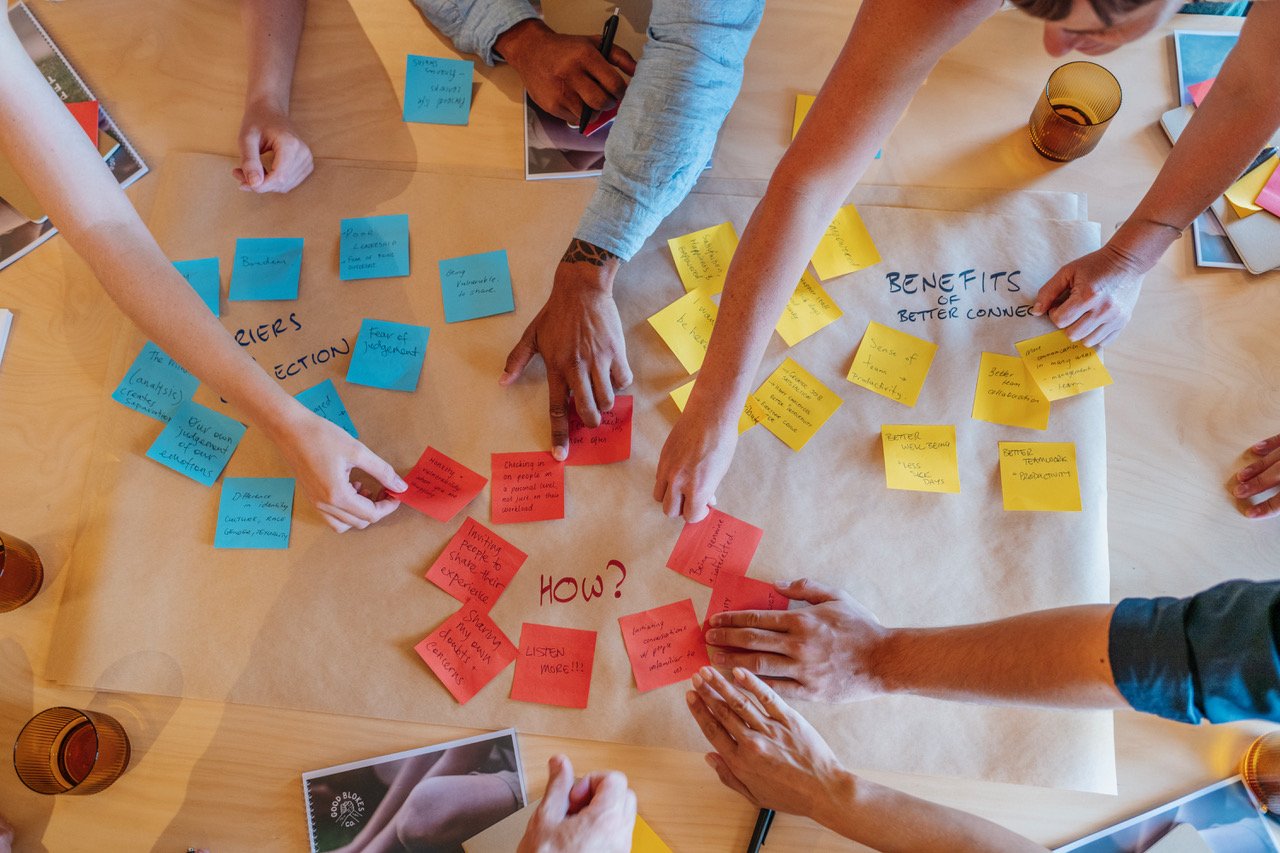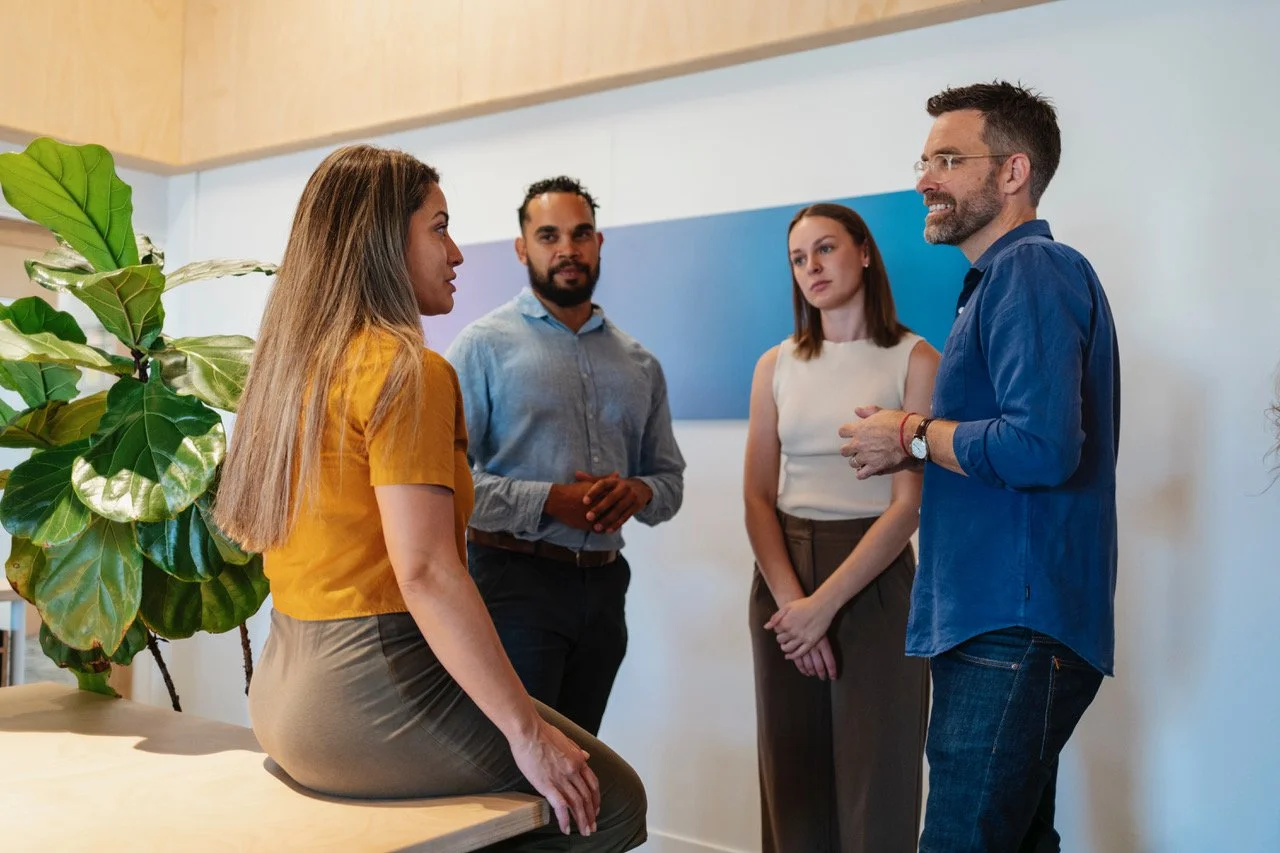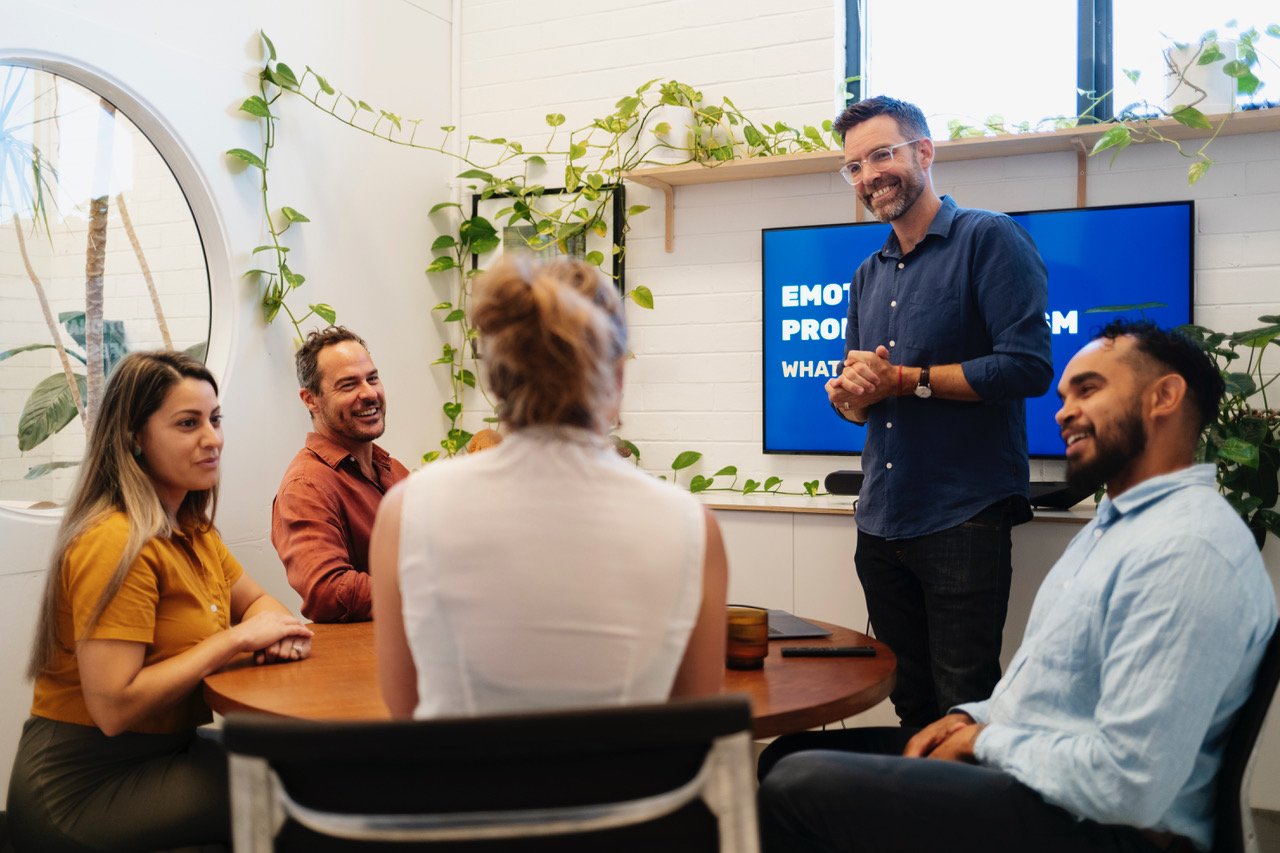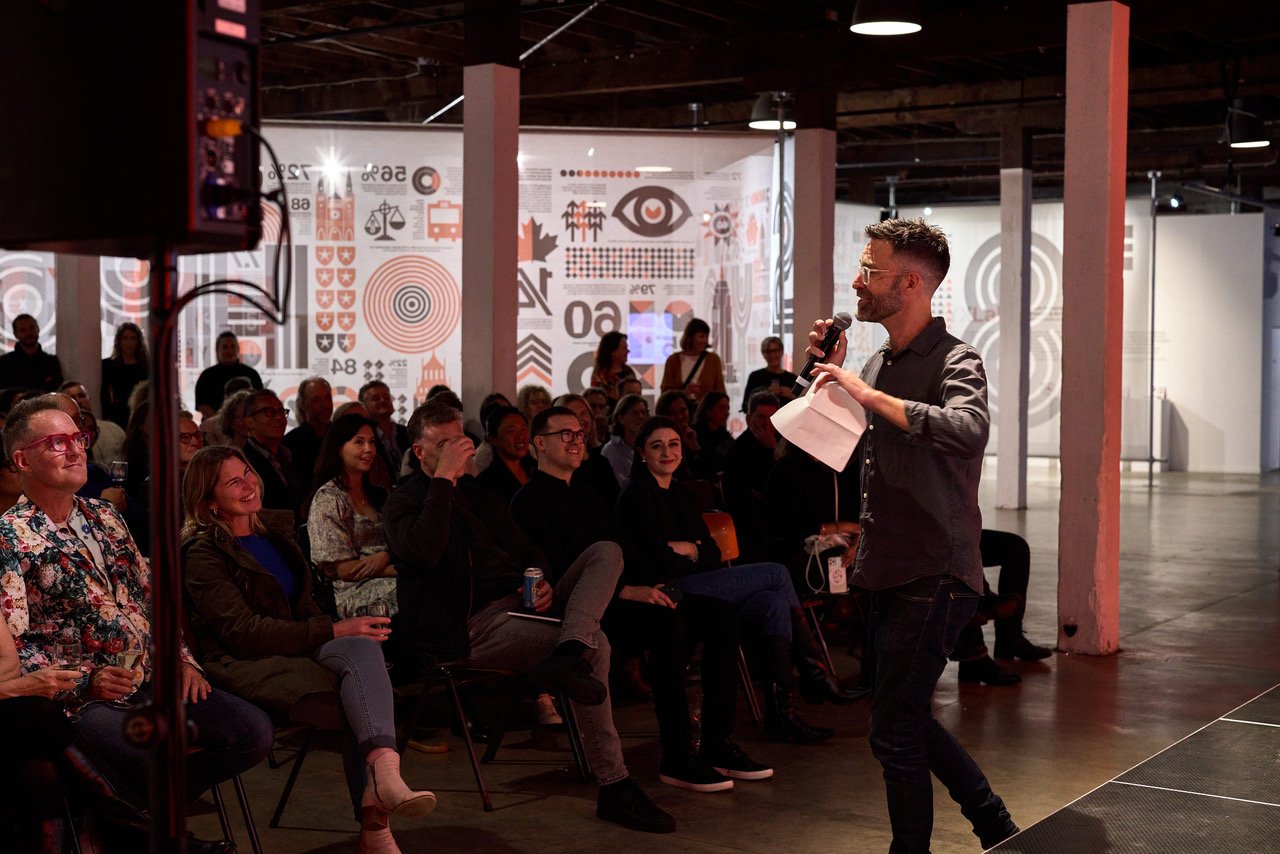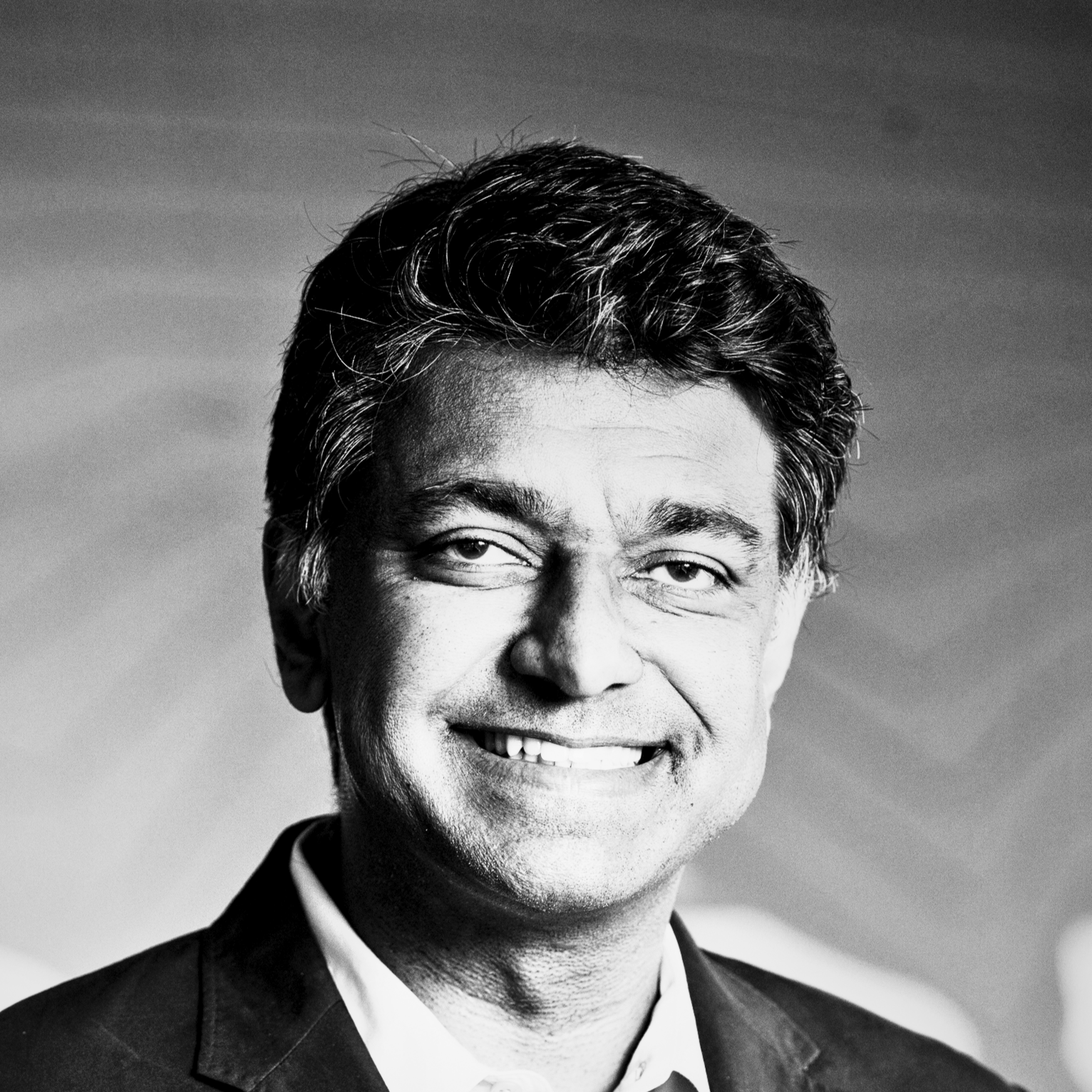Mike Dyson On Honest Conversations Creating Social Wellbeing And Positive Masculinity
Mike Dyson is a consultant, speaker and facilitator who is revolutionising wellbeing in schools and workplaces. His ‘Collaborative Wellbeing’ programs bring a pragmatic and down to earth approach that facilitates meaningful change.
With over 15 years in complementary medicine, supporting individuals to bring their yin and yang into balance, Mike uncovered a crucial missing piece in the mental health and wellbeing puzzle - human connection.
Mike has since transitioned to focus on social wellbeing and the impact of culture, spending a decade facilitating workshops, camps, leadership retreats and immersive trainings for high school students, teachers, parents and corporate groups exploring wellbeing, relationships, connection and the essential social and emotional skills that build a culture of belonging.
In 2016, Mike founded the social enterprise Good Blokes Co, empowering men and boys to take the lead in driving a healthier culture of masculinity.
Today, Mike helps educators to get young people excited about honest conversations on resilience, respect, empathy and accountability. And in workplaces, he supports wellbeing and DEI leaders to develop the human skills required to build communities where human beings thrive… together.
Mike discusses making honest conversations possible, its powerful impact on the wellbeing of communities, and the importance of teaching men healthy masculinity.
Highlights from the interview (listen to the podcast for full details)
[Sarah Ripper] - To start off, could you please share your background and what led you to where you are today?
[Mike Dyson] - I spent 15 years as a Chinese medicine practitioner helping people with acupuncture and Chinese herbs. It involved a lot of guiding people to make better choices around their diet, exercise, rest, relaxation, and having a clear mental state through mindsets and mindfulness. Over that length of that time, I started to get more frustrated with treating people at crisis point, because people weren't coming in for prevention. We always talked about how good complimentary therapies are at proactively warding problems off before they arise. An interesting thing that happened about 10 years into my career is I found myself on an emergency department hospital bed thinking I was having a heart attack. The doctor said, "there is nothing wrong with your heart, Mr. Dyson. This is an anxiety attack." It was a really disorienting moment for me because I thought I was doing all the right things. I was exercising every day, meditating, and eating healthy foods. I didn't even know I was in this state of high anxiety which had come upon me. It forced me to rethink some things, that was a major event for me. I did some counselling and talked to my friends about it, but probably the most transformative experience was when one of my clients invited me to join his local men's group. I thought that sounded interesting, so I figured I'd come and sit in someone's backyard around a fire and talk about our feelings.
It was quite a revolutionary experience to realise so many men had so much gone on in their lives they weren't talking about, whether it was mental health problems, relationships, financial or parenting stress, major career and life decisions or poor physical well-being.
All these conversations just weren't being had, and it was revolutionary to me to realise we could talk about these challenges going on in our lives. The big thing that created a huge shift for me was accountability. I would rock up to that men's group, and blokes would say, "hey, you said you were going to meditate every day last week. How did you go with that?" Or, "you said you were going to change X, Y, and Z did you do that?" They asked me about how I was going in a supportive and kind way; I realised having those deeper conversations around our well-being was a huge part of what was missing in terms of being able to talk about challenges, accountability, and support. Upon further research, I did a bunch of reading into the impacts of loneliness and how social isolation can be as dangerous to our physical health as smoking 15 cigarettes a day, or hypertension and obesity in terms of our heart health. It impacts our immune system and mental health; it creates all these huge negative impacts. I started to look at well-being through the lens of connection and collaboration, and started to work with groups of young people, groups of men, teachers, corporate groups, having conversations around healthy masculinity and positive proactive wellbeing. This led me to what I do now, which is largely teaching leaders the leadership skills that create spaces for honest conversations.
After working extensively in the space of navigating the art and the science of making honest conversations possible, can you tell us more about what you have learned?
What I notice about leading people into these conversations daily is there are a lot of people out there in workplaces, families and communities who are really itching for deeper conversations, more honest conversations around our mental health, well-being, diversity and inclusion, and masculinity. But in our normal environments, these don't feel like normal conversations. Those conversations don't feel safe and sometimes just aren't engaging. We don't have a reason to engage in them, even though we need them on a deeper level.
It's a huge missing piece from our well-being programs happening in schools and corporate spaces, because if we're to lead cultural change and help people make good decisions on an ongoing basis, we need to have conversations around what's not working, how we want things to be, and accountability.
When I started these working groups, I was quickly asked to show other people what I was doing. Over the last eight years, I've honed a framework for in how to get people to enthusiastically lean into those deeper and honest conversations. People are itching for it, all we must do is create a safe and engaging space as well. This means better conversations with young people in schools and at work around well-being, leadership, and inclusion. The nature of our social connection is shifting rapidly because of the internet, email, and messaging. Generationally, we are more isolated in our daily lives and want more connection at work and school. I'm just helping people create the conversations they're crying out for.
As a leader in the healthy masculinity space and through your work with your social enterprise, Good Blokes Co, what are some of the challenges, opportunities, and possibilities you have observed.
There is a lot of possibility, but we are living in a world where people are itching for better conversations. We talk about toxic masculinity a lot, and I think that's a great starting point. We need to know what men are getting wrong in the world. But I'm just not hearing heaps of conversations around healthy ways of showing up for men. What is healthy masculinity? What is positive masculinity? We get the conversation started about how things aren't working. We know men are dying by suicide at record rates. We know men's violence is ruining people's lives. We're not talking about how our culture of masculinity is a huge driver of both these things. The more pressure men feel to be a certain way, a tough guy or a 'real man', the more likely they are to be aggressive towards others and hurt themselves, or to be anxious, depressed and have thoughts of suicide. What's interesting to me is when you talk about opportunities, the biggest one is a lot of men care about this. A lot of men care about men's wellbeing, a lot of men care about women feeling safe at work, but then I ask men, "what are you doing about those things on a daily basis?" Unfortunately, most men aren't doing anything about the culture of masculinity we live in.
The big opportunity is there is a gap between what men care about and what men are doing to proactively make their own or mate's life better; to make women in workplaces or girls at school to feel safe, celebrated, equal and valued.
The link is what I just talked about, the human connection piece. There's good research to suggest elderly Australians are quite lonely, but depending on how you define it, some would say the loneliest demographic of Australians is 18 to 29-year-old young men. It’s those who've grown up with the internet and this masculine pressure to not trust or rely on others, and that leads us to the point where we don't have quality relationships. Yes, there are lots of people around us, but are there people we can lean on? Are they people we know are leaning on us? Are they mates we know we can pull up when they make a joke that's not funny in the lunchroom? The opportunity is we're desperate for these conversations, we can help a lot of blokes realise if they care about this, it's time for them to step up and to start acting.
What positive culture shift, whether it be in schools, workplaces, or communities have you observed because of these honest conversations?
It's easy to see in a lot of the school programs I've worked on, especially when you lead young men into just a simple conversation around what challenges they are having? If you create a space for honesty, you then have young men where it's like the top of their heads have been blown off from shock. They didn't realise everyone else is struggling with something else. Harvard psychologist Todd Rose has written a book recently called Collective Illusions. It's this idea we all think everyone else is thinking this one thing, but they’re not. Masculinity is a classic example of that, men are walking around thinking, "I want things to be different, but everyone else wants me to be a tough guy." Actually, no one wants you to be a tough guy anymore.
The Me Too movement is a classic example as well. When we as men hear the stories of women, we say, "oh, I didn't realise," because men don't have the experience of being a woman. They don't know what a woman's experiences is like, they need to hear women's stories as well as each other's stories. The difference in behaviour immediately after a single workshop is profound. They talk about having more support and being able to act. They say, "I feel more confident to call someone out when they make a dodgy comment," that's a comment that I hear all the time. They gain that ability to translate their desires to care for others into actual action. They are having better conversations with other blokes about their wellbeing. You hear lots of little comments about how a conversation on the WhatsApp thread has changed since a few things were called out. That's culture change.
Sometimes we think culture change starts with CEO and comes from a big trickle-down effect. Culture is all of us. Every interaction we have has the potential to impact other people, so why not think clearly about what we want our culture to be?
What inspiring projects or initiatives have you come across recently creating a positive social change?
I'm lucky to work with lots of people in these spaces. I run a program design and facilitation skills training; I get lots of people come in with cool projects. I teach drama in schools to boost kids’ well-being and social skills. I've done a bunch of work designing a well-being program for a small school here in Perth called IDEA Academy. It's for Year 11 and 12 kids, it's project-based learning all about entrepreneurship and innovation. They're just disrupting education and we’re providing a different way for young people to be educated. One of their young people has launched a brand called Glossy Boys. His name is Lucas, he has started a brand of nail polish for boys to challenge this whole masculine stereotype thing, which I think is just amazing. Probably the most inspiring thing I'm working on is with a local Nyoongar elder here, Uncle Noel Nanup. He is trying to create this program to prevent young Indigenous men going to prison, a preventative project. All these people are bringing their wisdom into the project, Aboriginal men, and non-Indigenous blokes like me are sharing all these ideas around how we can create change. No one's getting paid, there are just a heap of people putting all their energy into this thing, which I think Is amazing. It's starting to build momentum; there's funding and I can see this is potentially going to make a huge difference in a lot of people's lives. There are lots of inspiring things out there when we choose to look for them.
To finish off, what books or resources would you recommend to our listeners?
The big thing I'm passionate about is that connection and social wellbeing piece. Probably the most powerful book I've read in that space was John Cacioppo's book Loneliness. There's a book written by Dr. Vivek Murthy, the Chief Surgeon General of the United States of America (the highest-ranking medical officer in the United States). He's written a book about the most pressing issue facing the medical system in the United States, which is human connection. His book is called Together, which is an important read. If you want to know more about the masculinity piece, the simple way to start is to Google The Man Box study created by the Queensland University of Technology in 2018. There are heaps of good information about this masculinity piece and how it's shaping men's well-being.
Initiatives, Resources and people mentioned on the podcast
Recommended books
Collective Illusions: Conformity, Complicity and the Science of Why We Make Bad Decisions by Todd Rose
Loneliness: Human Nature and the Need for Social Connection by John T. Cacioppo & William Patrick
Together: The Healing Power of Human Connection in a Sometimes Lonely World by Dr. Vivek Murthy


